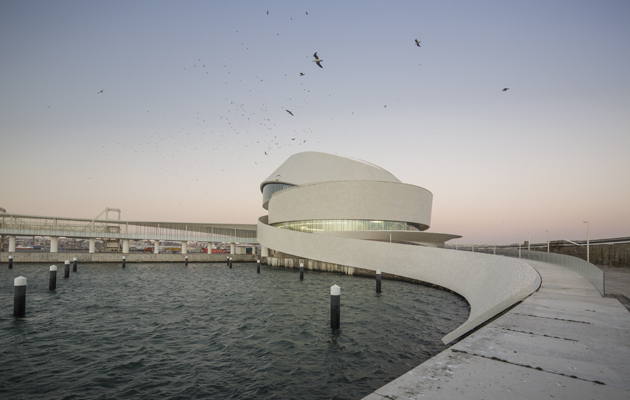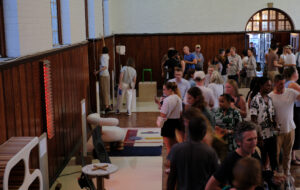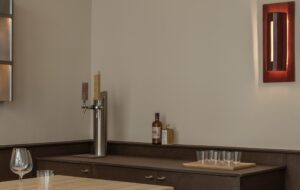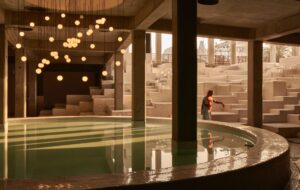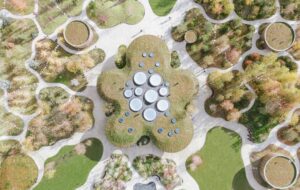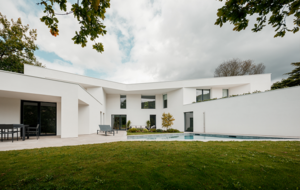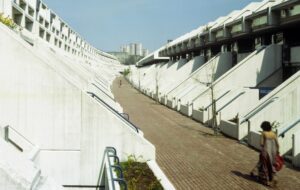|
|
||
|
Luís Pedro Silva unfurls a shimmering ribbon of glazed white tiles to bring the glamour of long-distance travel to an industrial port in northern Portugal Resembling a giant, glittering shell washed up on the southern pier of the Leixões port, the new cruise terminal by Porto-based architect Luís Pedro Silva immediately evokes poetic comparisons, bringing famed architectural precedents to mind, including Eero Saarinen’s 1962 TWA Flight Center at JFK International Airport, New York. Such comparisons may be superficial (the edifice on Portugal’s Atlantic coast is more akin to a large ribbon, following the pier’s contours and wrapping around a central space, than a symmetrical cantilevered shell), but the terminal still embodies the glamour associated with long-distance travel. “Saarinen was indeed an important reference for us,” says Silva. “At best, life, and spaces of life, should be a celebration.” And a celebration it certainly is: the building’s curves follow the pier as it juts into the Atlantic, culminating in a sculptural, light-filled passenger hall and a publicly accessible rooftop tribune. The intricate, twisted ribbon is clad in white glazed tiles that shimmer in the bright sun – not just a nod to scaly aquatic life but also to the traditional tiles that cover Porto’s homes. And the building’s dynamic silhouette creates a stark yet sensual landmark on the horizon, a moment of creative whimsy planted in a rough, coastal port. Yet the terminal is also an extremely functional piece of infrastructure; its curvature intuitively guides visitors – up to 2,500 at peak times – around the site, while the all-encompassing white band blocks out solar radiation. “We never aimed to be overly original,” stresses Silva. “Instead we wanted to create a sense of specificity to the place.” |
Words Peter Smisek
Image: The building’s wraparound facade is designed to reduce solar radiation
© FG+SG Architectural Photography |
|

